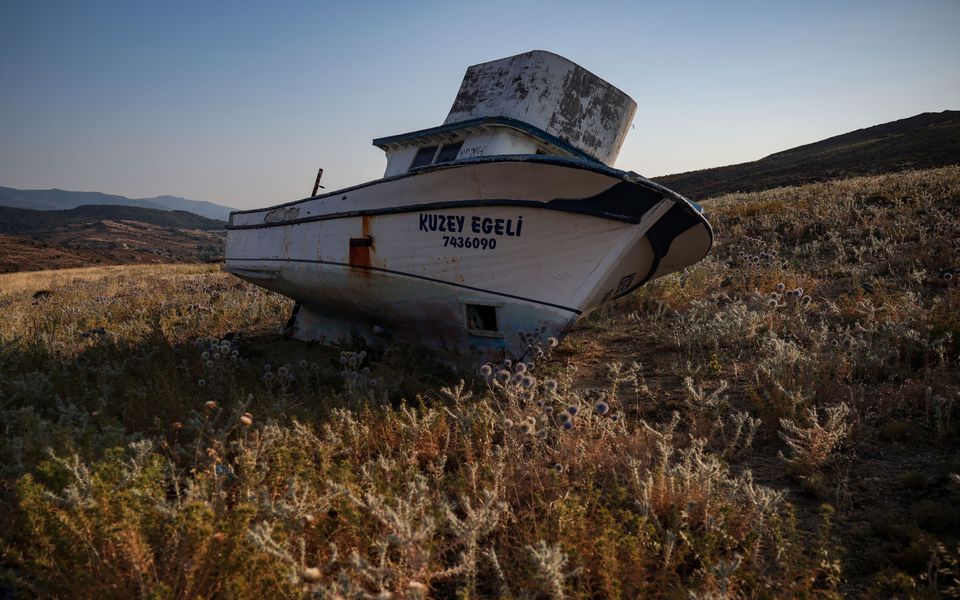reuters.com | 30 July 2025
By: Edward Mcallister, Vania Turner and Louisa Gouliamaki
On Europe’s hardened frontier, Greek island keeps migrants at bay
Sailing in the June sunshine off the island of Lesbos, Greek fisherman Thanos Marmarinos remembers how he saved migrant women and children whose dinghy was breaking up in a gale one night ten years ago.
Initially, when he received the midnight call, he was reluctant to leave his bed. The winds were bitterly cold, and he had already been on one rescue mission that evening – thousands of migrants were arriving in rickety boats every day.
“You’ll feel guilty if they drown,” the 70-year-old recalled his wife saying.
Soon he was lifting people onto his boat. One infant was wrapped up so tight he could only see their eyes.
“We would help again. I would be the first to,” Marmarinos said.
He risks jail if he does. Anyone caught helping migrants to shore today may face charges including facilitating illegal entry into Greece or helping a criminal enterprise under a 2021 law passed as part of Europe’s efforts to counter mass migration from the Middle East and Asia.
It’s one example of deterrents that have greatly reduced arrivals to Europe since the 2015 migration crisis but that rights groups say risk the lives of those attempting to enter.
Ten years ago, Lesbos, a tourist destination near Turkey ringed by quiet villages and tree-lined coves, became the first stop for half of the million people headed for Europe from countries including Syria, Afghanistan and Iraq. Lesbos residents helped them find food and shelter and the island became a hub for charities and aid workers as well as a symbol of Europe’s solidarity towards people fleeing war and poverty.
Today, the island shows how far government responses have hardened against people seeking refuge in Europe.
In 2015, some countries initially welcomed the new arrivals, especially those fleeing Syria’s civil war. German Chancellor Angela Merkel opened the borders to nearly 900,000 asylum seekers that year. But communities felt overwhelmed. Her ratings plummeted and today, anti-immigration policies are multiplying across Europe.
By 2024, irregular migrant arrivals to the European Union had fallen to around 240,000, less than a quarter of 2015 levels, data from EU border agency Frontex show. Just 11,200 migrants arrived in Lesbos last year, according to figures from the United Nations refugee agency, UNHCR.
When migrants arrive in Lesbos now, they are often intercepted by police as they near a coastal road used by holidaygoers. Charity workers need special permission from authorities to help them ashore or they face fines or imprisonment. A new camp to house migrants is under construction in a pine forest on a remote part of the island.
In the village of Skala Sikamias – which a decade ago was a frenzy of damaged dinghies, exhausted migrants and charity workers – tourists now dine on grilled fish while cicadas hum from the beachside pines.
The island’s tourism industry has recovered after a sharp drop. In 2024, the number of people arriving on international flights to Lesbos topped 76,000, according to Greece’s tourism confederation SETE, back to levels before the crisis.
“The island is moving on,” said Panagiotis Christofas, the mayor of Lesbos’ main city, Mytilene. “The crisis is in the past for us.”
Read more >>>

